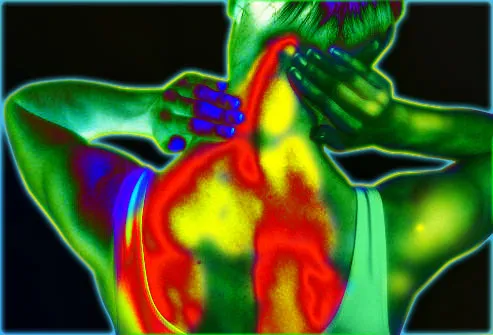Fibromyalgia, also called fibromyalgia syndrome (FMS), is a long-term condition that causes pain all over the body. It is a disorder characterized by widespread musculoskeletal pain accompanied by fatigue, sleep, memory and mood issues. Researchers believe that fibromyalgia amplifies painful sensations by affecting the way your brain processes pain signals.

SYMPTOMS
Symptoms sometimes begin after a physical trauma, surgery, infection or significant psychological stress. In other cases, symptoms gradually accumulate over time with no single triggering event. Others includes:
- Widespread pain: The pain associated with fibromyalgia often is described as a constant dull ache that has lasted for at least three months. To be considered widespread, the pain must occur on both sides of your body and above and below your waist.
- Fatigue: People with fibromyalgia often awaken tired, sleep disorders Sleep is often disrupted by pain, and many patients with fibromyalgia.
- Cognitive difficulties: A symptom commonly referred to as “fibro fog” impairs the ability to focus, pay attention and concentrate on mental tasks.
- Other problems: Many people who have fibromyalgia also may experience depression, headaches, and pain or cramping in the lower abdomen.

CAUSES
The exact cause of fibromyalgia is unknown, but it's thought to be related to abnormal levels of certain chemicals in the brain and changes in the way the central nervous system (brain, spinal cord and nerves) processes pain messages carried around the body.
It's also suggested that some people are more likely to develop fibromyalgia because of genes inherited from their parents.
In many cases, the condition appears to be triggered by a physically or emotionally stressful event, such as:
- an injury or infection
- giving birth
- having an operation
- the breakdown of a relationship
- the death of a loved one
- Genetics. Because fibromyalgia tends to run in families, there may be certain genetic mutations that may make you more susceptible to developing the disorder.
- Infections. Some illnesses appear to trigger or make fibromyalgia worse.
- Physical or emotional trauma. Post-traumatic stress disorder has been linked to fibromyalgia.
PRECAUTIONS
Exercise can relieve several fibromyalgia symptoms. Physical activity can reduce pain and improve fitness. Exercising just three times a week has also been shown to relieve fatigue and depression. But it's important not to overdo it. Walking, stretching, and water aerobics are good forms of exercise to start with for people with fibromyalgia.
REMEDIES
Treatment tends to be a combination of:
- Medication – such as antidepressants and painkillers
- Talking therapies – such as cognitive behavioural therapy and counselling
- Lifestyle changes – such as exercise programmes and relaxation techniques













